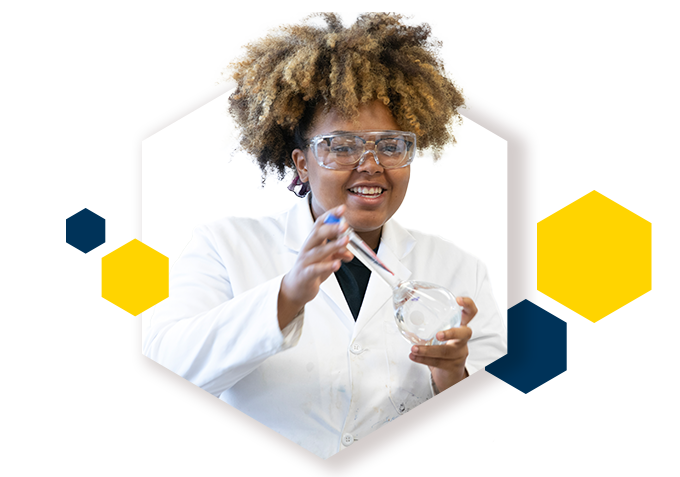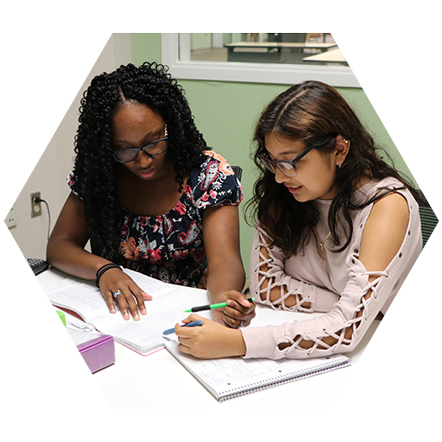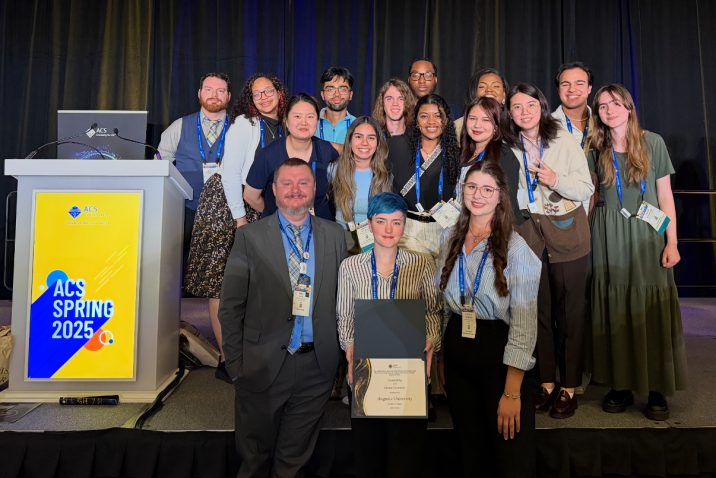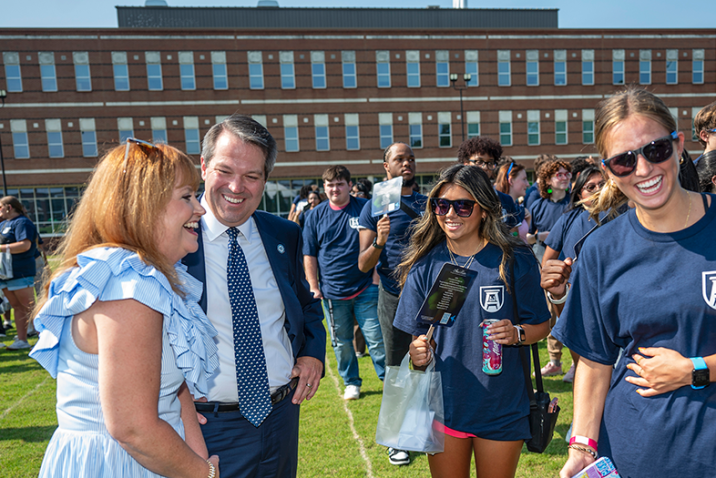Creativity, Discovery, Engagement
The College of Science and Mathematics is for undergraduate and graduate students interested in pursuing a biological sciences, chemistry, physics, or mathematics education. Augusta University offers innovative, well-rounded programs that inspire students to become confident thinkers and problem-solvers with flexible skills that prepare them for a wide range of careers.

Math and science programs at Augusta University challenge students to think bigger than themselves. They are pushed to question, analyze, and explore, using the knowledge they gain to solve world problems that affect us all.
The College of Science and Mathematics engages students in a creative, research-based educational experience that instills a lifelong love of learning and service. Students develop through inquiry, discovery, research, intellectual growth, and community involvement. Our award-winning teaching staff provides high-quality instruction, inspiration, and encouragement so that students emerge from AU well-rounded and ready to take on the many challenges facing our planet today.
College of Science & Mathematics
Health Sciences Campus
Science & Mathematics Building
706-729-2259
Creativity, Discovery, Engagement
The College of Science and Mathematics offers nationally recognized, academically challenging, and engaging programs.
Stimulate an interest in scientific inquiry and the diversity of living organisms. We seeks to equip students with skills necessary for future employment in various scientifically-related fields
Provides students with the solid foundations they need to develop analytical and problem-solving skills that are sought-after by graduate and professional schools
Teaching of logical, numerical, and analytical skills; to the advancement of knowledge; and to the enrichment of the community in a climate which fosters empowerment, humane values, and a life-long love of learning
With breakthroughs in technology and the understanding of the brain, studying neuroscience can provide students with a deep understanding of human behavior, cognition, and the nervous system
Allows students to develop the theoretical and practical problem-solving skills that are required in both graduate schools as well as industry

Student Success
Specifically designed to meet the need for fluent Spanish-speakers in healthcare, the primary focus of this Living Learning Community (LLC) is to assist first-year students in achieving academic success during this crucial period for a chosen healthcare career.
An intermediate level of proficiency in spoken Spanish is required to be eligible for this LLC, and a student's choice of major should be appropriate for their chosen healthcare field.
All biology courses were challenging but my professors helped me develop a technique to understand the material instead of memorizing it, which made me complete each course feeling accomplished.
Za'Mya Thomas
Biology Student
The Mathematics department makes me feel comfortable approaching professors about anything. I have learned more than just math here and I am grateful for the experience.
Austin Mobley
Mathematics Student
Being a chemistry major is very challenging, but that is what makes it more enjoyable. The gratification of overcoming a challenging concept is one of the most incredible feelings I've ever experienced.
Stephanie Adebola
Chemistry Student


The College of Science and Mathematics provides students with strong foundations in the sciences as well as preparation for careers, citizenship, and a life-long love of learning. We are committed to providing experiences promoting scientific inquiry and discovery and dedicated to creating opportunities for intellectual growth and community involvement.
